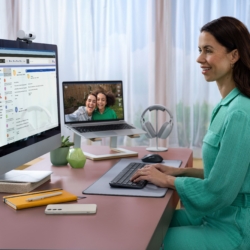April 18, 2024
A lot of young people don’t think their employers give a fig about sustainability
 Ahead of World Earth Day, a new poll from Zest, claims that workers across the UK are increasingly focused on sustainability and expect their employers to do more – particularly younger generations. Half (51 percent) of employees are keen to see their company invest more in sustainability, rising to 61 percent of younger workers aged 18-34. The survey from Zest also reveals that over half (53 percent) would like to see their company investing in more sustainable benefits such as electric vehicles, similarly rising to two-thirds (66 percent) of 18–34 year olds – and these demands are not going unnoticed. (more…)
Ahead of World Earth Day, a new poll from Zest, claims that workers across the UK are increasingly focused on sustainability and expect their employers to do more – particularly younger generations. Half (51 percent) of employees are keen to see their company invest more in sustainability, rising to 61 percent of younger workers aged 18-34. The survey from Zest also reveals that over half (53 percent) would like to see their company investing in more sustainable benefits such as electric vehicles, similarly rising to two-thirds (66 percent) of 18–34 year olds – and these demands are not going unnoticed. (more…)




































April 19, 2024
Roboquitting is the latest workplace trend to emerge in the era of hybrid working
by Marvin Gort • Comment, Flexible working, Technology